Yalta World War Two summit that reshaped the world BBC News
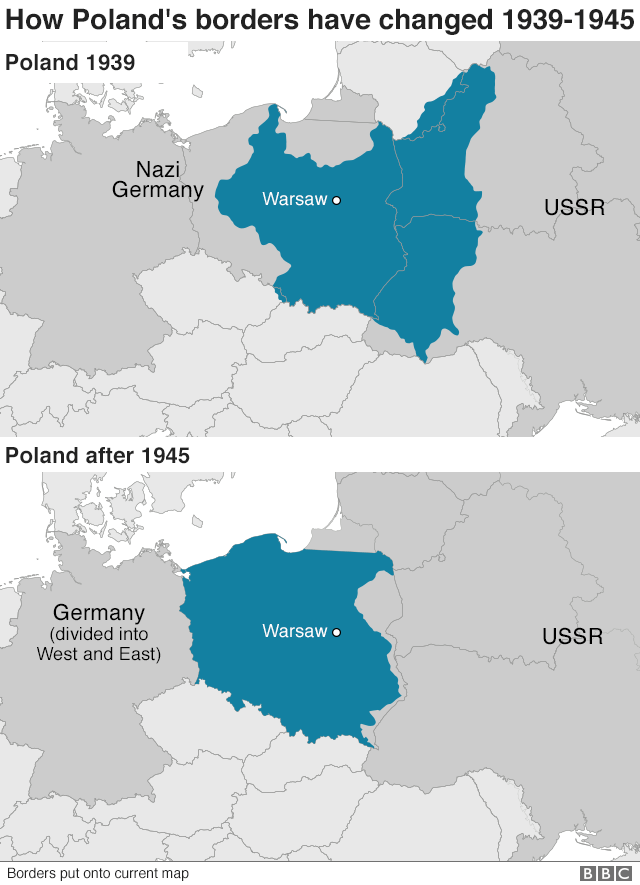
Map with the Participants in World War II : Dark Green: Allies before the attack on Pearl Harbor, including colonies and occupied countries. Light Green: Allied countries that entered the war after the Japanese attack on Pearl Harbor. Blue: Axis Powers and their colonies Grey: Neutral countries during WWII
End of Polish campaign > WW2 Weapons

The Warsaw ghetto, established on October 12, 1940, was the largest ghetto, in both area and population. There, more than 350,000 Jews--about 30 percent of the city's population--were eventually confined in about 2.4 percent of the city's total area. Item View Nazi camps in occupied Poland, 1939-1945 German administration of Poland, 1942
Eastern Front Maps of World War II by Inflab Medium
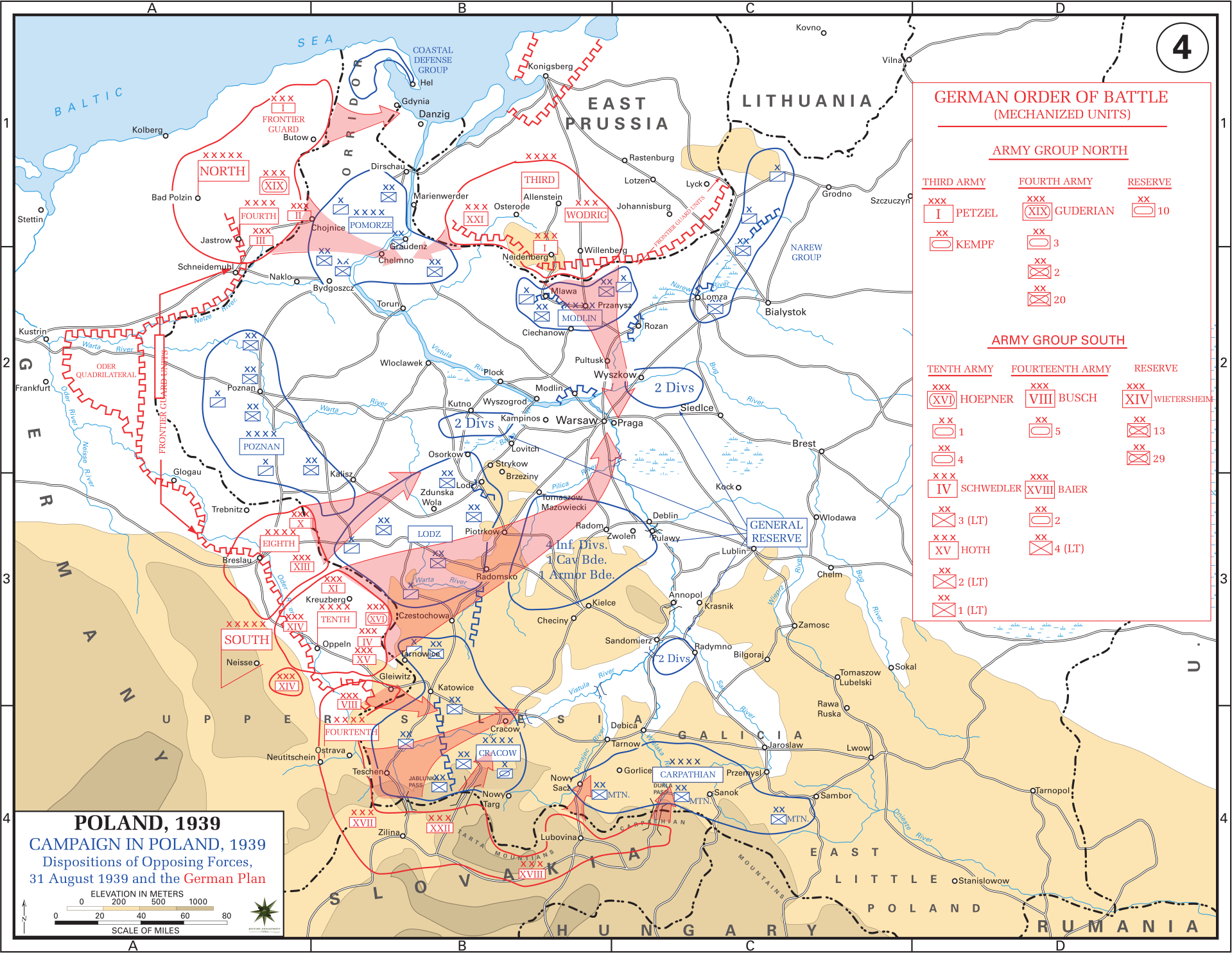
The Luftwaffe's terror-bombing of Polish cities, bridges, roads, rail lines, and power stations completed the disorganization of the Polish defenses. German soldiers breaking down a barricade at the Polish border at the outbreak of World War II, 1939. On September 1, 1939, the German attack began. Against northern Poland, General Fedor von.
Map Poland Wwii Share Map
Territorial history In 1492, the territory of Poland-Lithuania - not counting the fiefs of Mazovia, Moldavia, and East Prussia - covered 1,115,000 km 2 (431,000 sq mi), making it the largest territory in Europe; by 1793, it had fallen to 215,000 km 2 (83,000 sq mi), the same size as Great Britain, and in 1795, it disappeared completely. [4]
Fräulein Inspektor Hausarbeit western union trzebnica Backup Achse
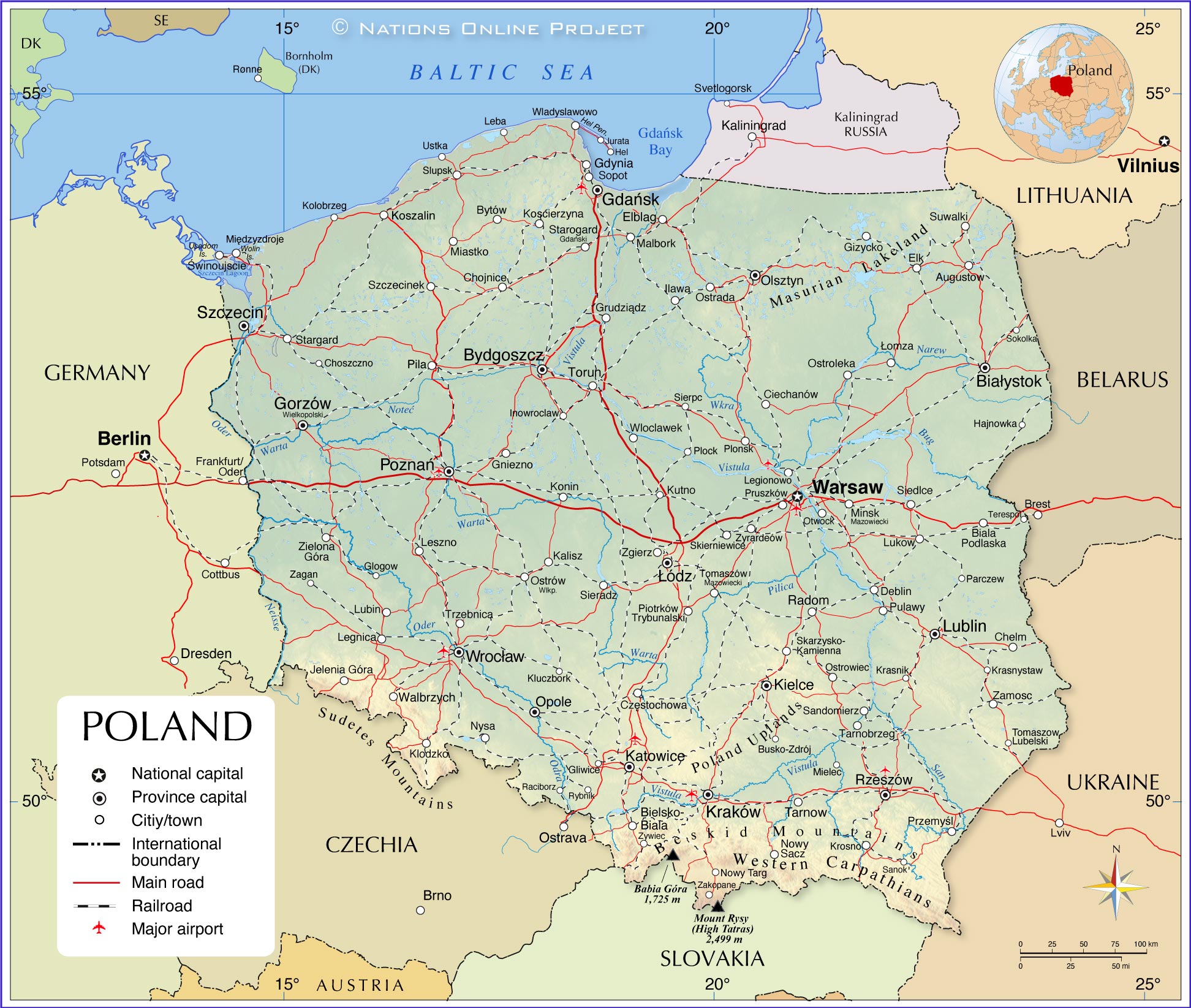
On 17 September, the Soviet Red Army invaded Eastern Poland, the territory beyond the Curzon Line that fell into the Soviet "sphere of influence" according to the secret protocol of the Molotov-Ribbentrop Pact; this rendered the Polish plan of defence obsolete. [17]
The City

Invasion of Poland | Historical Atlas of Europe (16 September 1939) | Omniatlas Europe 1939: Invasion of Poland Soviet Union Germany <- United States Iran Italy France Ukraine Russian S.F.S.R. Turkey Algeria(Fr.) Egypt(Br. infl.) Saudi Arabia Spain Britain Kazakh S.S.R. Libya(It.) Azerb. Bulgaria By. Cyprus(Br.) Denmark Est. Finland Georgia Greece
Poland World War II

Auschwitz, also known as Auschwitz-Birkenau, opened in 1940 and was the largest of the Nazi concentration and death camps. Located in southern Poland, Auschwitz initially served as a detention.
Administrative division of Polish territories during World War II
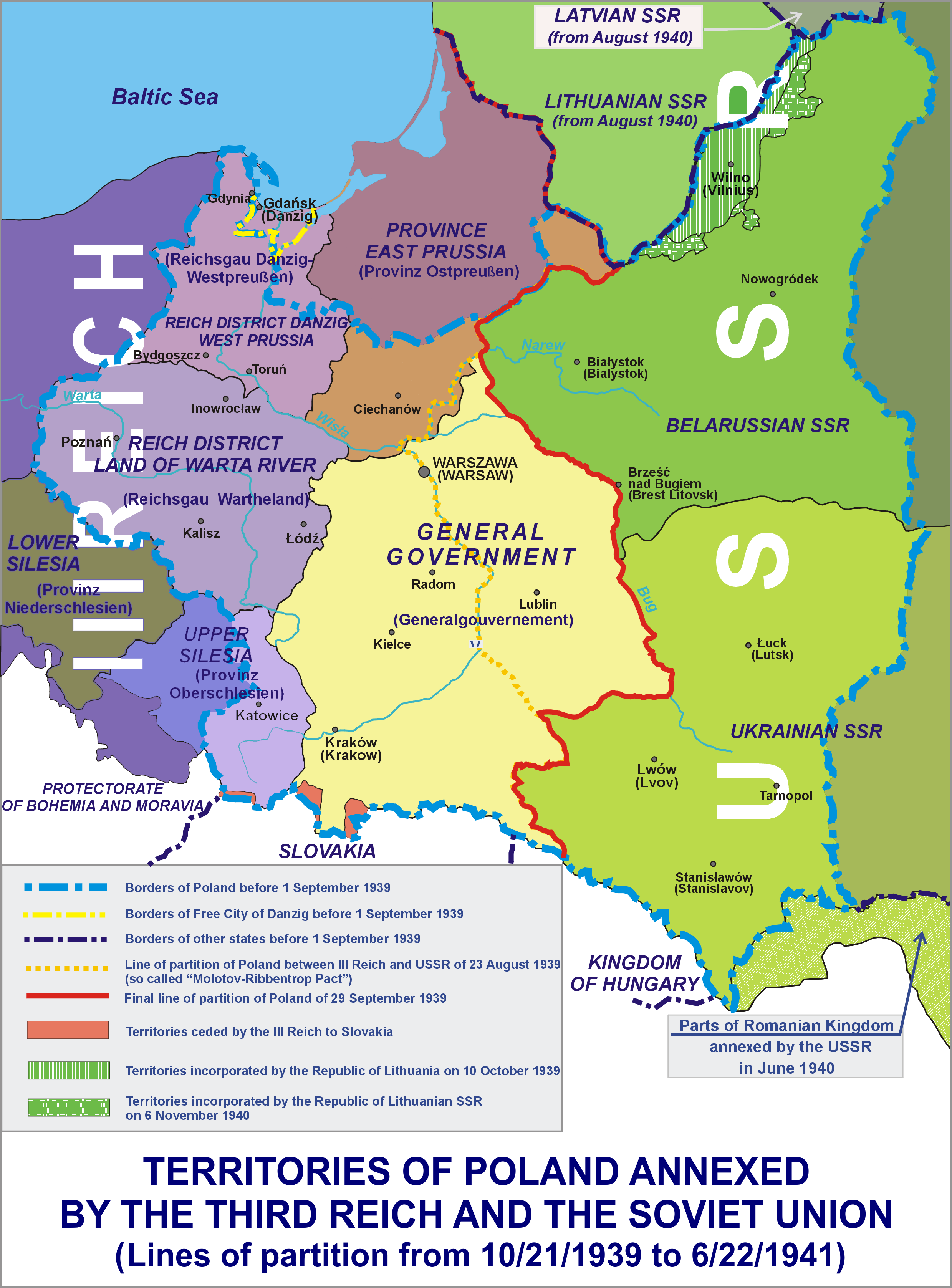
Poland - History, Culture, Politics: With an area of about 150,000 square miles (389,000 square km) and more than 27 million inhabitants (more than 35 million by 1939), interwar Poland was the sixth largest country in Europe. Devastated by the years of hostilities, the state had to be reconstructed of three parts with different political, economic, and judicial systems and traditions.
Invasion of Poland Maps September 1939 « Historical Resources About

World War II See all related content → Invasion of Poland, attack on Poland by Nazi Germany that marked the start of World War II. The invasion lasted from September 1 to October 5, 1939. As dawn broke on September 1, 1939, German forces launched a surprise attack on Poland.
INVASION OF POLAND OUTBREAK OF WORLD WAR II
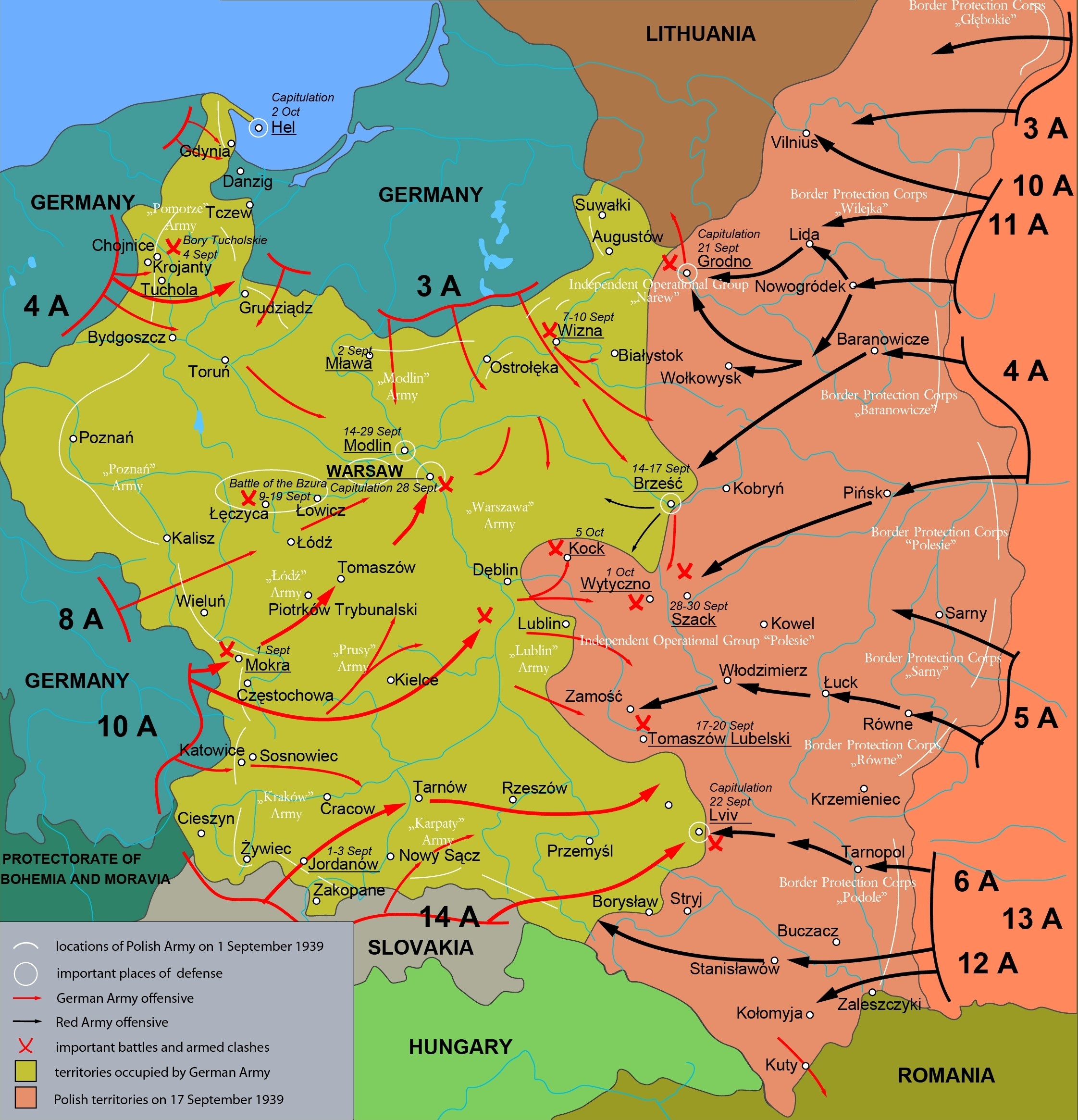
Without a declaration of war, 1.5 million troops stormed Nazi Germany 's 1,750-mile border with Poland. They came from the north, south and west. They came by land, by air and by sea in a quest.
Polish Greatness (Blog) SEPTEMBER 1939 INVASION OF POLAND DAY BY

Category:Maps of Poland during World War II From Wikimedia Commons, the free media repository Subcategories This category has the following 7 subcategories, out of 7 total. A Maps of Armia Krajowa (1 C, 121 F) M Maps of Reichsgau Danzig-West Prussia (5 F) Maps of Reichsgau Wartheland (9 F)
Invasion of Poland Maps September 1939 Historical Resources About

Book early and save $1,000 per couple! In collaboration with The National WWII Museum WORLD WAR II IN POLAND: HOLOCAUST, RESISTANCE, AND REBIRTH A moving journey that explores the history and heritage of Poland from the first moments of World War II through the fall of the Iron Curtain.
Poland 193945 Nazi invasion
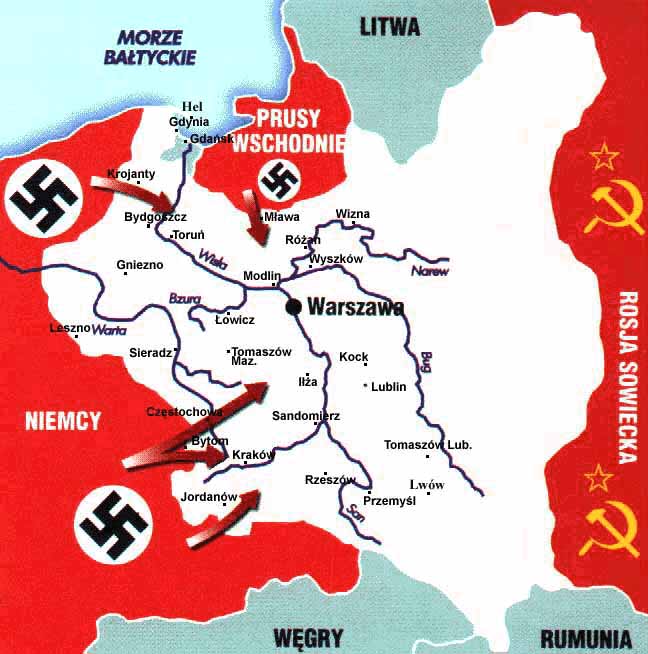
1 Nazi Germany possessed overwhelming military superiority over Poland. The assault on Poland demonstrated Germany's ability to combine air power and armor in a new kind of mobile warfare. 2 On September 17, 1939, the Soviet Union invaded eastern Poland, sealing Poland's fate. The last operational Polish unit surrendered on October 6. 3
Poland before and after WWII Maps InterestingMaps Interesting in

The history of Poland from 1939 to 1945 encompasses primarily the period from the invasion of Poland by Nazi Germany and the Soviet Union to the end of World War II. Following the German-Soviet non-aggression pact, Poland was invaded by Nazi Germany on 1 September 1939 and by the Soviet Union on 17 September.
Many Things Have Happened Family War Letters

The estimates vary; Professor Elżbieta Trela-Mazur gives the following numbers in regards to the ethnic composition of these areas: 38% Poles (ca. 5.1 million people), 37% Ukrainians, 14.5% Belarusians, 8.4% Jews, 0.9% Russians and 0.6% Germans. There were also 336,000 refugees from areas occupied by Germany, most of them Jews (198,000). [2]
General Map of Poland

Map of Poland, 1939-1945 Subject Poland boundary shift, before and after WWII. Description The boundary of Poland was redrawn again after World War II, with territories East of the Curzon Line, a huge part of the pre-war territory, given to the Soviets and German territory, East of the Oder and Nesse Rivers, given to Poland in reparation. Creator